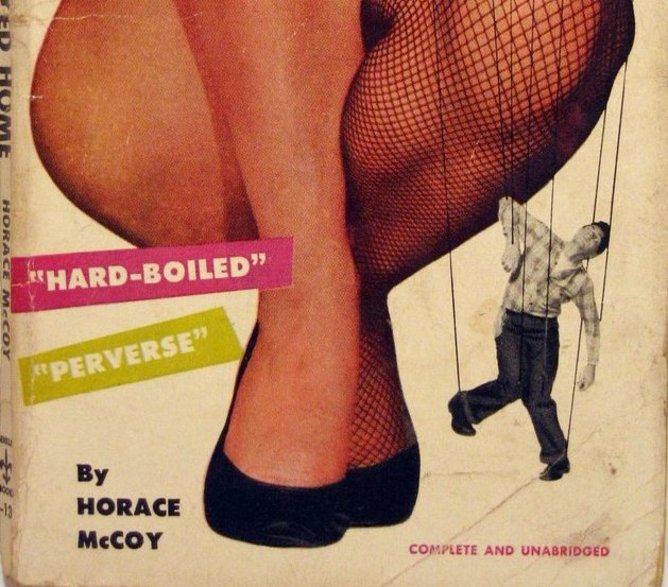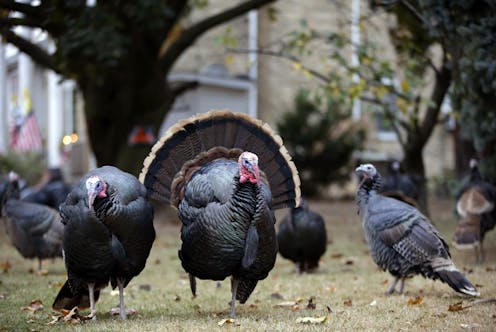Guilty Pleasures: sleazy sex and violence from interwar America

Welcome to Guilty Pleasures, a summer series in which academics reveal their most embarrassing cultural inclinations. Ever wanted to know what literature professors delve into on holiday, when they can’t quite bear to crack into that next classic? Over the next few weeks, you’ll find out.
On lazy summer days I somewhat guiltily steer clear of my normal reading habits. My favourite thing to tuck into is a group of writers whose books were deemed sleazy when they first appeared. Respectable reading folk didn’t dare admit them into their homes; they weren’t stocked by libraries – in fact, quite a few library districts went so far as to ban them. And they could only be bought at drug stores or at the kind of place that sold its goods in brown-paper wrappers – partly because the paperback covers (and these books were always published in paperback) boasted lurid portraits of violent looking men and semi-naked women.
These writers were known as “hardboiled”; and they flourished in the USA between the two World Wars. They took their tough-guy style of writing from Ernest Hemingway, but then carried it downmarket: to the seedy streets and even seedier people of Depression America. Their stories, which always have a mean streak and a whole series of twists, focus on apparently average men and women caught caught up in a cycle of deprivation who suddenly turn to sex or violence or both in a desperate attempt to break that cycle. Graphic sex and violence ensues. They show ordinary people spiralling down into nightmare worlds, victims of chance and coincidence – a malign fate, a malevolent system, or an unknown, malicious individual.
Cornell Woolrich is one of my favourites. Author of many novels and short stories, including The Bride Wore Black and a short story that Alfred Hitchcock turned into his famous film Rear Window, his bleak view of life is summed up by one phrase he coined: “First you dream, then you die.”
I also love David Goodis. Goodis wrote a series of stories that began in 1939 and included a novel, Dark Passage, that became a film starring Humphrey Bogart and Lauren Bacall. And then there’s Horace McCoy, who described a world of seedy hotels, cheap dance halls, rundown movie theatres, and precinct station backrooms, all inhabited by drifters, loners, the victims and the corrupt.
It’s no accident, I think, that a lot of these “hardboiled” stories were turned into highly successful films. They’re real page turners, with something totally unexpected and utterly ridiculous happening on almost every page. The characters start off leading ordinary everyday lives but then, most often through no fault of their own, get lost in a nightmarish labyrinth of deceit, guilt and suspicion from which there is no escape but death. A feast of melodrama.
James M Cain, perhaps the most successful of them, is typical of this. For a while in the 1930s and 1940s, he was the most notorious writer in the United States. He wrote a lot of highly successful novels, including Mildred Pierce, which became a popular movie starring Joan Crawford. But the ones I like best are his seediest and most notorious – and the ones that were translated most successfully on to the screen: The Postman Always Rings Twice and Double Indemnity.
The Postman Always Rings Twice tells the story of Cora Papadakis and a drifter Frank Chambers. They’re lovers who murder Cora’s wealthy husband for his money, making it look like an accident. Cora then dies in a car crash, and ironically Frank is convicted of murder for her death, when it was in fact an accident. Double Indemnity also has an unmarried man and a married woman plan and execute the husband’s “accidental” death, this time for the insurance. The plan works, but the lovers fall out, killing each other in the end. Those looking for morals may think this sounds like justice served but this couldn’t be further from the truth – it’s hardboiled, all a matter of chance, accident. The genre thrives on bitter twists of fate.
Desire is the primary motive for all Cain’s characters, the instinct driving them to escape from their mean, petty, sometimes impoverished lives. But it’s an instinct that traps them instead of liberating them, sending them on a tortuous fatal journey, full of narrative ups and downs that keep the reader spellbound.
Cain insisted he made “no conscious effort to be tough, or hard-boiled, or grim”. “I merely try to write as the character would write”, he said. “And I never forget that the average man … has acquired a vividness of speech that goes beyond anything I could invent.”
I think McCoy, Goodis and Woolrich could have said the same. Their style is tough and lean, as hard as the language of the streets; and their plots offer the guilty pleasure of seeing and sharing in the life of an “average man” or woman caught up in the dullness of their existence and their dreams of leaving – and then destroyed by the very passions (adultery, incest, hatred, greed lust, or whatever) that, however perversely, they see as their avenues of escape.
You probably can’t get these books at drug stores any more, but you can still buy them in some bookshops or on the internet. Get them; read them; I guarantee you’ll be gripped. They’re still wonderful pleasures, although perhaps quite as guilty as they once were, now they come without that brown paper cover.













